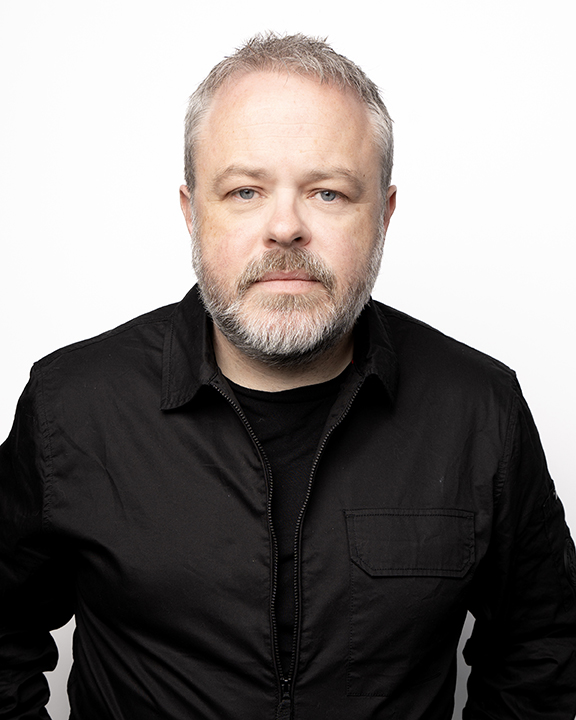Richard came into ESG, what was then known as corporate social responsibility, via his work for public relations companies and NGOs. He joined the law firm, CMS Cameron McKenna in 2003, running their community investment and pro bono programmes before joining Herbert Smith Freehills in 2006 as head of corporate responsibility.
With others, he helped broaden the firm’s corporate citizenship agenda, including promoting the link between the firm’s work and topics like business and human rights, climate change, impact investing and sustainable development. There was a strong international dimension to the programme, helping emerging economies lever inward investment effectively to develop their economies and benefit their populations.
Richard was with HSF for seven years, before being taken on in a series of ESG roles in a range of sectors including financial services, infrastructure and gambling as well as a period with the leading human rights NGO, the Thomson Reuters Foundation. He joined the Canadian-headquartered Intact Financial Corporation in 2021, perhaps better known in the UK as RSA Insurance Group.
“I lead the ESG stakeholder engagement and disclosure strategy for Intact Financial Corporation, the largest provider of property and casualty (P&C) insurance in Canada. In 2021, Intact acquired the UK-headquartered international insurance firm, RSA, which coincided with my joining the company. We now employ over 30,000 people primarily in Canada, the US, the UK, Ireland and various locations across continental Europe.
Whether you see companies’ motivation to incorporate ESG as being because they see it as the right thing to do or because they believe it is in their commercial benefit will depend, of course, on the company. Many companies have a standalone ESG strategy that sits alongside the corporate strategy.
For Intact, ESG is integrated with our strategy. Intact has one set of global objectives, where financial and non-financial goals sit side by side. That’s central to the role - communicating the way that, for Intact, financial and non-financial outperformance are two sides of the same coin.
Leading the disclosure strategy involves reflecting on Intact’s performance against its strategic social impact objectives, together with considering how we respond to a range of ESG standards or frameworks. We then convert those into the data points and narrative that satisfies the interests of different parties. This includes our own people, our investors and regulators in a range of markets, but also increasingly includes customers and the community at large who are interested to see how Intact is performing. Our job is to find a balance across those different interest groups and coalesce behind a shared strategy that delivers value.
My primary focus currently is supporting the business through a whole range of now mandatory requirements that we’re seeing in different markets. Historically, much of the ESG agenda was a voluntary activity. Now, it’s a much more embedded feature of mandatory regulation.
The UK is perhaps the most mature insofar as there have been mandatory requirements, particularly for climate-related financial disclosures, for a number of years, but this is now a requirement mirrored by the Canadian financial regulator. For our EU entities we are also having to navigate the new EU Corporate Sustainability Reporting Directive, which is both comprehensive and quite prescriptive in its approach.
Whilst our approach to climate risk is arguably the most significant category of disclosure, companies are also expected to disclose increasing volumes of information around performance in relation to business ethics, corporate governance, human rights, and diversity and inclusion, for example.
My role is partly about making sure that our messaging is aligned across the group business. There’s also much work to do around how we source and validate data so that the story we are telling is robust and we are painting an accurate picture of our performance. A longer-term area of focus is around how we can leverage our relationships with our corporate customers and supply chain and work with them to incorporate ESG practices into their operations so that we can achieve mutually beneficial goals.
When it comes to our retail customers, we are building on a history of fostering an approach to climate adaptation and resilience that is about customers and communities protecting themselves from the extremes of weather. This has been a particular feature of the Canadian environment in recent years.
We want to make sure that people feel like they can make choices to help themselves to be more resilient should the worst happen, both at the level of the household and the wider community. Since 2010, Intact has committed over CAD$26 million in funding for climate adaptation action. A lot of that has been deployed in Canada, but we are now increasingly investing in partnerships in other markets like the UK, for example.
The impact of climate change on our customers is clearly something that is a concern for the whole insurance industry, and we are pleased to support the work of industry associations like the Association of British Insurers, ClimateWise and the Insurance Bureau of Canada who are helping to foster an industry-wide approach.
Fundamentals are the same
Having worked on ESG in multiple sectors over 20 years, I’m always interested in how this plays out in different industry contexts. My observation is that the fundamental approach is actually always pretty similar, but there are clearly topics that you may emphasise or over-index depending on the sector and at a certain time and businesses are clearly not isolated from political context.
Historically, much of the ESG agenda was a voluntary activity. Now, it’s a much more embedded feature of mandatory regulation."
When it comes to ESG as a business practice or discipline I tend not to get too hung up on the terminology. I really view it as an entry point into some really important conversations that we all need to have about the environment, with climate being a particular concern, about diversity and inclusion, about human rights, about equality and other issues. Those conversations don’t go away if you change the terminology around what people like me do for a living.
Whilst those are all very different topics, my job is to try and weave that into a unified story about how a business thinks about itself and about its role in the world. I don’t think that will change “fundamentally”.
Features
Alumni Matters 2024
Start here
Introduction with Ben Ward
I am privileged to be taking over as a senior alumni ambassador
A view from Ho Chi Min City
There has been a transformation in Vietnam’s economy over the past three decades
Full AI immersion
'US top 40 under 40 lawyer’ Sam Clearwater explores the huge potential of AI
Partnering with the arts
Herbert Smith Freehills takes immense pride in our enduring partnerships with the arts
Blazing a trail in Australia
Reflections from Juliana Warner's 44 years at HSF
It's easy as ESG
Three alumni explore the plethora of ESG considerations businesses are facing
12 Questions with...Andy Raine
Deep dive into environmental law and his journey to the UN
Leading with a fresh perspective
Stefanie Wilkinson, Global GC of BHP, on managing a cross-country team for a large, complex business
In-house in-touch
The importance of really knowing your business
Calm amid the storm
HSF’s cyber risk offering: Help around the clock
The real importance of words
Maguelonne de Brugiere on the outstanding work of a charity that addresses verbal abuse of children
Networked for success
Helping young people foster skills for their future career
Lawyer to founder
Tara Grossman and Srin Madipalli have struck out into business, with their primary ambition to do good
Why I came back
Benjamin Lohr on what brought him back to HSF
Boardroom discussions
After 30 years on company boards, Nora Scheinkestel imparts wise advice on how to build a career as a non-executive director
Firm highlights 2024
Legal Notice
The contents of this publication are for reference purposes only and may not be current as at the date of accessing this publication. They do not constitute legal advice and should not be relied upon as such. Specific legal advice about your specific circumstances should always be sought separately before taking any action based on this publication.
© Herbert Smith Freehills 2025
Stay in the know
We’ll send you the latest insights and briefings tailored to your needs

